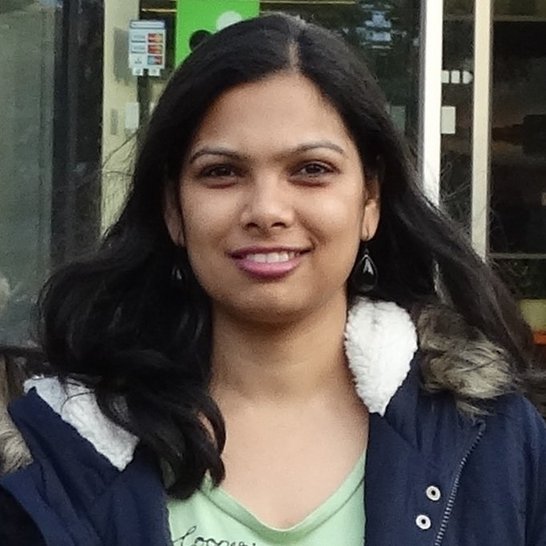Kamalika Datta, India

- Employment: Assistant Professor at the National Institute of Technology Meghalaya, Shillong, India
- Scholarship: Programme for Scientific & Technological Cooperation (S&T Cooperation) financed equally by the Austrian Federal Ministry of Science, Research and Economy (BMWFW) and by the Department of Science and Technology (DST) of the Ministry of Science and Technology in India
- Duration: 09/2017–10/2017
- Motto: Make new friends and make the world a better place to live
Curriculum Vitae
Kamalika Datta is an Assistant Professor in the Department of Computer Science and Engineering, National Institute of Technology Meghalaya, India. She received the Master of Computer Applications (MCA) degree from the Biju Patnaik University of Technology, India, in 2006, the Master of Science (M.S.) degree from Indian Institute of Technology Kharagpur, India, in 2010, and the Ph.D. degree from the Indian Institute of Engineering Science and Technology, India, in 2014. She joined NIT Meghalaya as a faculty member in the year 2014. She is currently handing several sponsored projects in the areas of memristor based system design, reversible and quantum circuits, and embedded systems. She is the principal Investigator of an Indo-Austrian project on memristor-based logic synthesis, under which she visited Johannes Kepler University Linz, Austria during September and October, 2017. She is also quite active in promoting the development on online teaching materials, and is the Professor-in-charge of the Centre for Technology Enabled Learning in her Institute. She has developed a number of video courses based on her classroom teaching that are available online. She has also developed and offered an online MOOC course on “Computer Architecture and Organization” where more than 6000 students enrolled. She is currently guiding three Ph.D. students, and has published more than 48 papers in peer reviewed journals and conferences. Her current research interests include the synthesis and optimization of reversible and quantum circuits, memristor based logic design, and security in IoT systems. She is a member of the IEEE.
Reflection
I received the grant for a joint Indo-Austrian project, which was partly funded by the Department of Science and Technology, Government of India, and partly funded by Federal Ministry of Science, Research and Economy (BMWFW), Austria. This is a collaborative project with Prof. Robert Wille of Johannes Kepler University (JKU), Linz, Austria. The objective of the project is to develop algorithms for efficient and scalable synthesis and optimization of digital circuits using memristors, and develop computer-aided design tools for the same. Prof. Wille visited India during July 2017 where we had a very fruitful discussion regarding the plans for achieving the project objectives, and is expected to visit again during December 2017. During my 3-week visit to JKU during September and October, 2017, I had the opportunity to meet and interact extensively with the research group of Prof. Wille, and had been successful in chalking out a number of research activities to be taken up by us. We identified two problems in scalable synthesis of digital circuits to memristor crossbar for in-memory computing, and have also identified two problems for the synthesis of ternary reversible logic circuits using some new approaches. We already have come up with some joint publications, and expect to have several more in the near future. In addition to Linz, I had the opportunity to visit two other cities of Austria, Salzburg and Innsbruck, and could get a very close experience of Austrian traditions and culture. My stay in Austria has been very smooth, with the host institute taking all care and ensuring I had a suitable accommodation and office space to work. I am eagerly looking forward to my next visit in 2018.
